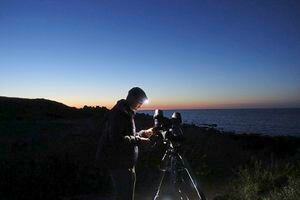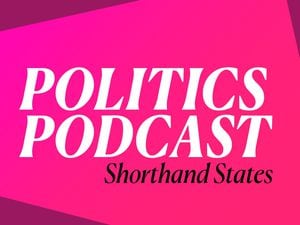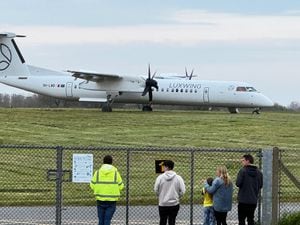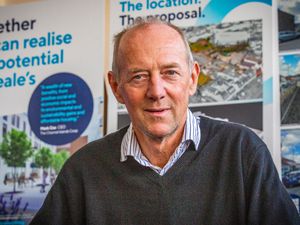Astronomy fellowship is bittersweet for student
THOMAS HARVEY has been accepted as a Fellow of the Royal Astronomical Society.

Studying astrophysics at the University of Southampton, he plans to spend his final year at the Harvard-Smithsonian Centre for Astrophysics in Boston, USA.
Nominated in July by another fellow, his mentor the late David Le Conte, he said the announcement was bittersweet.
At the age of 16 Mr Harvey joined La Societe’s astronomy section, where Mr Le Conte was central, and has helped out as much as possible by hosting events, lectures, media interviews and open days plus operating telescopes.
‘I was excited to hear I had been accepted,’ Mr Harvey said.
‘However it was a bit bittersweet because David Le Conte, who nominated me, passed away in August. He wrote some very kind things in his nomination. It is sad I can’t let him know that I was accepted.
‘David was nominated by his good friend Sir Patrick Moore for his services to astronomy. David was always excited to show anyone how to use a telescope. His passing was a great loss both to local astronomy and the island. He is greatly missed by all of us at the astronomy section.
Lifelong interest led Mr Harvey to learn much in practical and theoretical astronomy while guided by other section members, some of whom are also fellows.
‘I was a very avid reader as a child and always enjoyed sci-fi, so I have always been interested in space in some form.’
A-level physics and Societe section work developed that interest.
‘Seeing the objects, like galaxies, you are studying at school with your naked eye makes it seem so much more real and exciting. I was encouraged by David and other members and by my physics teacher at school.’
Guernsey’s observatory is preferred to Southampton’s due to less light pollution offering higher visibility.
‘The observatory in St Peter’s is one of the darkest spots on the island, which is very useful for our open evenings, as many more stars and even the band of our Milky Way galaxy is visible to the naked eye. The lack of light pollution helps when photographing astronomical objects.’
University modules have been getting more interesting the further he progresses, starting with basic general physics before looking deeply.
Performing top five in his course has gained Mr Harvey the Whittaker Bursary to continue study abroad.
After university, Mr Harvey hopes to go into a competitive specialised research field, and will likely try to pursue an astronomy PhD.
Many exciting astronomical projects are active which he hopes to engage with.
‘If I had to pick a project to work on it would be awesome to work on one of the new flagship telescopes that are being constructed – maybe the James Webb Space Telescope, which is a successor to Hubble, or one of the truly massive ground-based telescopes such as the Thirty Metre Telescope in Hawaii.’
RAS membership allows use of private facilities in London, including a dedicated astronomical library.
‘I can also use the letters FRAS after my name, but I’m not particularly bothered about that – it sounds far too formal.’
Budding astronomers were advised to use local observatories or contact clubs, which are generally run by enthusiastic, knowledgeable and helpful people.
‘It’s a truly fantastic place run by amazing people that I think everyone should take advantage of.
‘I would tell anyone who is considering studying physics or astronomy to go for it; it is incredibly interesting.’
Hard work and mathematics are key, so taking maths and programming courses will make life easier.
But the important thing is to keep a sense of wonder alive, he said.
‘When I’m stuck on a difficult problem it’s useful to remind myself why I wanted to study astronomy in the first place.
‘The universe is so much larger and older than us, so who knows what we could find?’





